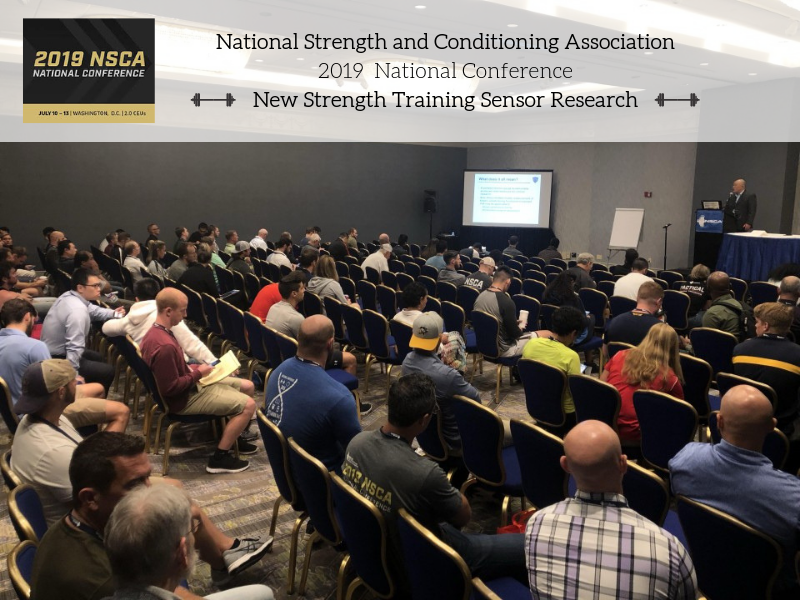Strength Tracking Sensor Performance Validated Against More Expensive Solutions

New strength training research was presented on Friday July 12th at the NSCA national conference in Washington DC. Research from the University of Toledo compared the accuracy of ShapeLog’s low-cost retrofit sensor with the isokinetic Biodex device found in human performance labs around the globe. Data from ShapeLog’s portable, retrofit device was compared to data from the Biodex. Full results will be available in forthcoming papers.
Takeno, K., Katch, V.L., & Ingersoll, C.D. High Validity and Reliability of a New Portable Tension-Gauge Dynamometer for Isometric and Isotonic Seated Knee Extension Force Measurement. Presented at the 2019 National Strength and Conditioning National Conference, Washington, D.C.
Here’s a summary of the presentation:
Researcher Katsumi Takeno presented results from his work at the Motion Analysis and Integrated Neurophysiology Laboratory at the School of Exercise and Rehabilitation Sciences, the University of Toledo. Katsumi highlighted the limitations of current technologies available for strength assessments, noting the lack of solutions for isotonic force measurement. ShapeLog® solves this problem with its patented ShapeSense Select™, a sensor that retrofits any brand of cable and band-based weight machine, surfacing data by measuring the tension in the cable and motion of the weight stack simultaneously.
Biodex, and related Biodex equipment, are well established within the research and physical rehabilitation community. The accuracy of ShapeLog’s product was validated by implementing a custom apparatus that allowed knee extension tension data from its ShapeSense-Select™ sensor and torque data from a Biodex machine to be gathered simultaneously. The subjects who participated in the study consisted of 20 active individuals (10 males, 10 females) aged 18-25 with no history of lower extremity surgery, nor recent injury. The two data streams were found to have excellent correlation in peak values across subjects (r = 0.98, p < 0.01) and excellent fit for the data from onset to offset of force production during the trials (mean R2 = 0.99).
To further validate the accuracy of the product, the two data sources were overlaid into consistent units to compare the profile of force and tension data from the two solutions. Integrating the cumulative error (represented by the area between the two profiles) showed that the devices differed by an average of just 1.05% (+/- 0.41).
The ShapeSense-Select™ sensor can also capture the same high-quality force data while in motion on any traditional piece of selectorized cable and band-based equipment. The second part of the study evaluated the test-retest reliability of this isotonic assessment technique using the same twenty participants. The subjects were asked to perform knee extension exercises on two separate visits to compare the consistency of results at both 25% and 30% of their maximum voluntary isometric contraction (MVIC) established during the first part of the study. Results showed excellent reliability at 30% MVIC and good to excellent reliability at 25% MVIC.
These novel findings represent a substantial opportunity for the wellness and rehabilitation community. Any facility with existing selectorized weight equipment, such as commercial gyms and out-patient rehabilitation facilities, are now able to instantly incorporate professional grade sports performance or physical rehabilitation information into their offering. ShapeLog’s ShapeSense-Select™ enables a connected-strength future for all with its low cost, brand agnostic solution.